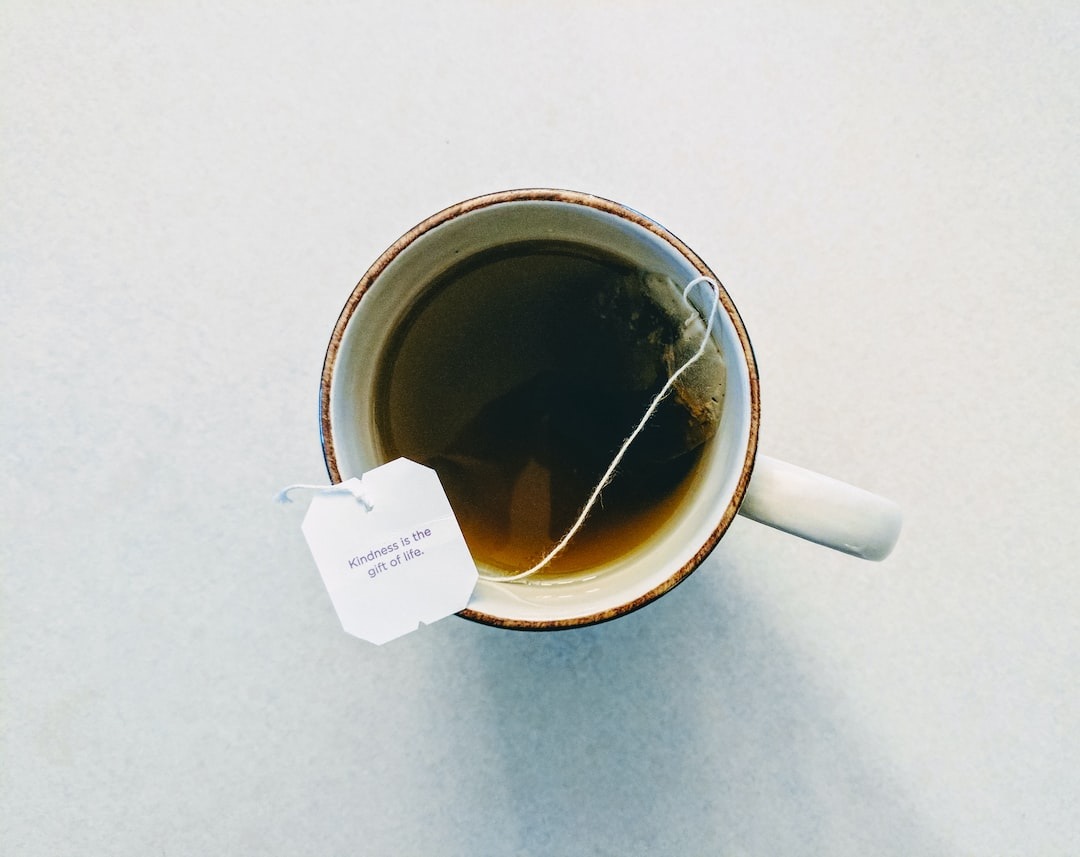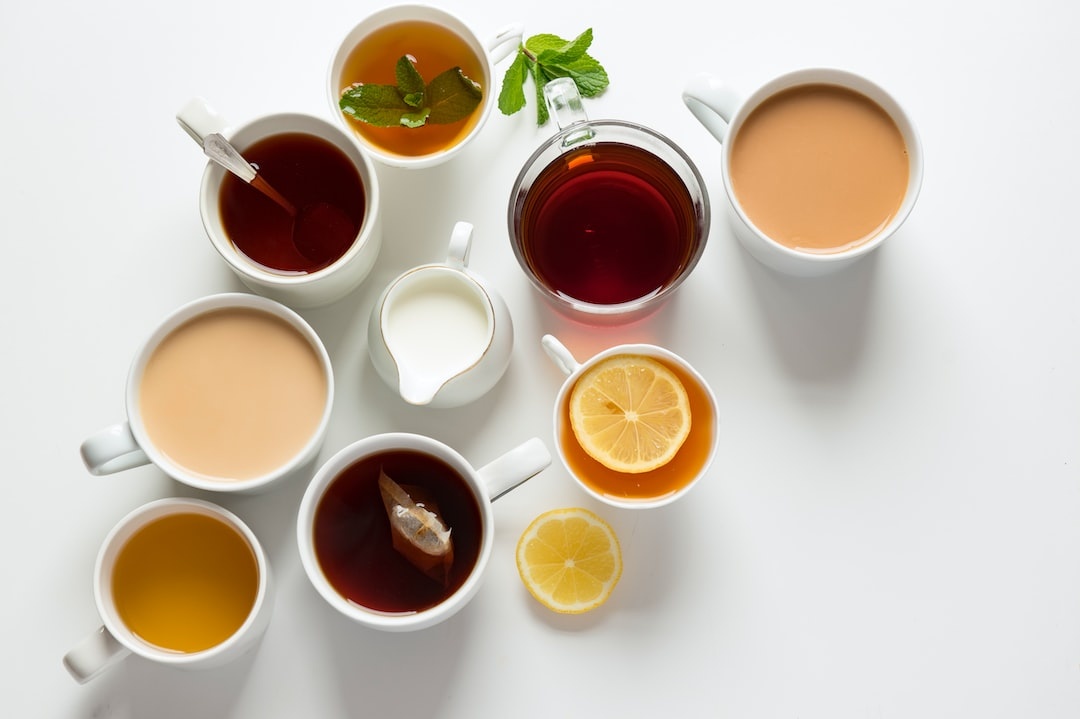Discovering the Delicate and Nuanced World of White Tea
If you’re a tea lover, you’ve probably heard of white tea. It’s been gaining popularity in recent years for its smooth, subtle taste and numerous health benefits. But what exactly is white tea, and why should you give it a try? Let’s delve into the world of white tea and explore its origins, production methods, and different varieties.
What is White Tea?
White tea is a type of tea that is made from the youngest leaves and buds of the Camellia sinensis plant. Unlike black tea or green tea, white tea is the least processed tea and is therefore considered to be the most delicate of all tea types. The name “white tea” comes from the fine white hairs that cover the unopened buds of the tea plant.
Origins and Production
White tea is usually produced in China, although it is also grown in other parts of the world such as India, Sri Lanka, and Nepal. The leaves are picked during early spring, when they are still young and tender. They are then withered and dried in the sun or in a temperature-controlled environment to preserve their delicate flavor and aroma.
Health Benefits
White tea is known for its low caffeine content and high antioxidant properties. It is believed to have numerous health benefits, including reducing the risk of heart disease, stroke, and certain types of cancer. Its subtle flavor and numerous health benefits make it a great choice for those looking for a healthier alternative to coffee or other caffeinated drinks.
Types of White Tea
There are several types of white tea, each with its own unique flavor and production method. Here are some of the most popular types:
- Silver Needle: This is the most highly prized and expensive type of white tea, made only from the unopened buds of the tea plant.
- White Peony: Made from the buds and the first two leaves of the tea plant, this tea has a slightly stronger flavor than Silver Needle.
- Tribute Eyebrow: Made from the buds and the fourth or fifth leaf of the tea plant, this tea has a slightly earthy flavor.
Experience the Delicate Flavor of White Tea
Overall, white tea is a delicate and nuanced beverage that is a must-try for any tea lover. Its subtle flavor and numerous health benefits make it a great choice for those looking to explore the world of tea. So, why not give white tea a try and experience its delicate flavor for yourself?
Discover the Health Benefits of White Tea
Have you ever heard of white tea? This delicate tea is derived from the same plant as green and black tea, but it undergoes minimal processing, making it the least processed type of tea. In this blog post, we will explore the many health benefits of white tea and why it should be a part of your daily routine.
Antioxidant Properties
White tea is packed with antioxidants, particularly polyphenols. These powerful compounds help protect the body from free radicals, which can cause cell damage and lead to chronic diseases. Studies have shown that polyphenols in white tea have anti-inflammatory properties, reducing the risk of heart disease, diabetes, and cancer.
Cardiovascular Health
Drinking white tea can also improve cardiovascular health. Studies have shown that it can lower blood pressure and improve cholesterol levels, reducing the risk of heart disease. If you’re looking to improve your heart health, consider adding white tea to your daily routine.
Stress Relief
White tea contains theanine, an amino acid that promotes relaxation and reduces stress and anxiety. Studies have suggested that theanine in white tea may also improve cognitive function and mental clarity. If you’re feeling stressed or anxious, a cup of white tea may be just what you need to find some calm.

Caffeine Content
Unlike other types of tea, white tea is low in caffeine. This makes it an excellent choice for those who are sensitive to caffeine or want to reduce their caffeine intake. You can enjoy a cup of white tea any time of day without worrying about disrupting your sleep or feeling jittery.
Conclusion
Overall, drinking white tea regularly can provide numerous health benefits and contribute to a healthier lifestyle. Whether you’re looking to improve your cardiovascular health, reduce stress, or simply enjoy a delicious cup of tea, white tea is an excellent choice. So, brew yourself a cup today and start reaping the benefits!
Discover the Delicate Art of Brewing White Tea
If you’re a tea lover, you may be familiar with black and green teas, but have you tried white tea? This delicate and refreshing tea has a subtle flavor and aroma that sets it apart from other types of tea. However, brewing white tea can be challenging, as its delicate nature requires a gentler brewing process. In this blog post, we’ll uncover the secrets of brewing white tea to perfection.
Water Temperature and Tea Leaves
The first step to brewing white tea is to heat your water to the right temperature. Unlike black or green tea, white tea requires a lower temperature of around 170-180F (77-82C) to avoid scorching the leaves and bringing out bitter flavors. Once you’ve heated your water, use around 1-2 teaspoons of loose leaf white tea per cup (8 oz) of water.
Steeping Time and Teapot
Next, steep the tea for around 2-3 minutes, but no more than 5 minutes to avoid over-extraction. It’s recommended to use a glass or ceramic teapot to avoid any metallic aftertaste. For a stronger flavor, you can increase the tea leaves or steeping time slightly, but be cautious not to overdo it.
Flavor Enhancements
White tea can be enjoyed plain or with a touch of honey or lemon, depending on your preference. To enhance the tea’s aroma and taste, try adding some fresh herbs like mint or lavender to the brew.
Storage Tips
Finally, store your white tea leaves in an airtight container away from light and moisture to preserve their freshness and quality.
Conclusion
Brewing white tea may require a bit more attention and care, but the result is worth it. The delicate flavor and aroma of white tea make it a unique and refreshing beverage that can be enjoyed at any time of the day. So, sit back, relax, and savor a cup of perfectly brewed white tea.
Discovering the Delicate Flavor and Health Benefits of White Tea
Are you a tea lover searching for a new and refreshing flavor? Look no further than white tea. This minimally processed tea is made from young tea leaves and buds, resulting in a delicate and light flavor with subtle floral and fruity notes. But, white tea isn’t just tasty. It’s also known for its high levels of antioxidants and low levels of caffeine. So, let’s delve deeper into the world of white tea and explore its many health benefits and delicious drink recipes.
Health Benefits of White Tea
White tea is not only a tasty beverage, but it’s also a healthy one. Here are some of the health benefits of white tea:
- High levels of antioxidants that can help protect against damage to cells and reduce the risk of chronic diseases such as cancer and heart disease.
- Low levels of caffeine, making it a great alternative to coffee or black tea for those who are sensitive to caffeine.
- Potential anti-inflammatory properties that may help reduce inflammation in the body and improve overall health.
White Tea Drink Recipes
Now that we know the health benefits of white tea, let’s explore some delicious white tea drink recipes:
| Drink Recipe | Ingredients |
|---|---|
| White Tea and Strawberry Smoothie | White tea, frozen strawberries, banana, honey, and almond milk. |
| White Tea Lemonade | White tea, lemon juice, honey, and water. |
| White Tea and Gin Cocktail | White tea, gin, lemon juice, honey, and mint leaves. |
But these are just a few of the many white tea drink recipes out there. Get creative and try adding other ingredients such as ginger or even coconut milk to make your own unique white tea creation.
Conclusion
White tea is not only a delicious and refreshing beverage, but it also has many health benefits. From its high levels of antioxidants to its low levels of caffeine, white tea is a great choice for those looking for a healthy and flavorful drink. So, grab a cup of white tea and explore the many delicious drink recipes out there. Who knows, you may just find your new favorite beverage.


Leave a Reply